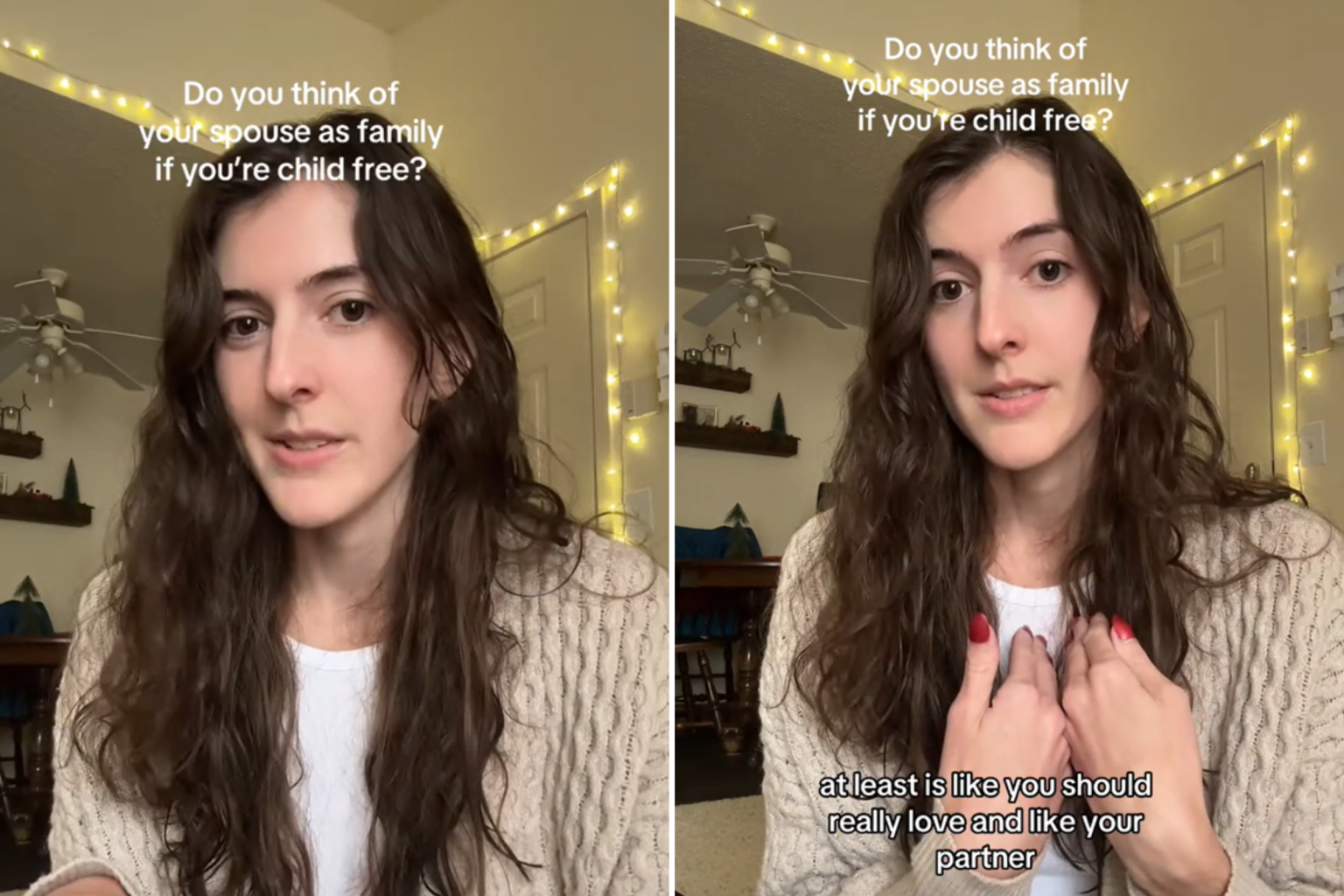Kristen, a 29-year-old TikTok user, ignited a conversation about the conventional understanding of family, challenging the societal norm that often excludes childless couples from this definition. She argues that the bond between two partners, built on love, commitment, and mutual support, constitutes a family unit regardless of the presence or absence of children. Kristen emphasizes that the decision to spend quality time together, often celebrated in families with children, should be equally valued and acknowledged for child-free couples. This inherent double standard, while not necessarily malicious, reflects a deeply ingrained societal bias that links family exclusively to blood relations or the presence of children. Kristen’s perspective broadens the definition of family, encompassing the love and connection that form the foundation of any meaningful relationship, regardless of its structure.
Kristen’s contention stems from her personal experience as a happily married woman who doesn’t have children. She observes a stark contrast in how society perceives couples who prioritize time with their children versus those who dedicate time to their partnership. The former is often praised and seen as nurturing family bonds, while the latter can be viewed as selfish or indicative of a lack of fulfillment. This disparity, Kristen believes, arises from a historical context where having children was the norm, shaping the way family is traditionally defined. However, with the increasing number of individuals and couples choosing to remain child-free, the conversation around what constitutes a family needs to evolve. Kristen’s assertion is that the core elements of a family – love, support, and lifelong commitment – exist independently of parenthood, making childless couples just as much a family unit as those with children.
Kristen’s perspective extends beyond just married couples without children; she argues that unmarried partners, committed to a lifelong relationship based on love and support, also constitute a family. The presence or absence of a legal document, like a marriage certificate, does not diminish the familial bond they share. This perspective challenges the traditional markers of family, emphasizing the emotional core of the relationship over its formal recognition. Kristen recognizes that tradition plays a significant role in shaping the conventional understanding of family. Historically, procreation was central to the concept of family, leading to the current societal bias. However, as societal norms shift and more people choose alternative paths, the definition of family must adapt to reflect these evolving realities. Kristen’s argument is not about diminishing the importance of traditional families but about expanding the definition to be more inclusive and reflective of diverse relationship structures based on genuine connection and commitment.
Kristen’s TikTok video, in which she articulated her perspective on the definition of family, resonated with a surprisingly large audience, accumulating thousands of views and likes. She hadn’t anticipated such a widespread response, but the video clearly tapped into a shared sentiment among many who felt excluded by the traditional definition of family. The overwhelmingly positive reactions, particularly from other child-free individuals and couples, underscored the validity of her perspective and the need for a more inclusive understanding of family. Many commenters echoed Kristen’s sentiments, sharing personal stories and expressing relief at finding validation for their own experiences. The video’s success highlights the power of social media platforms in fostering dialogue and challenging societal norms.
Kristen’s intention in creating the video was to initiate a much-needed conversation about the evolving definition of family. She sought to provide validation and support for others who, like her, felt their relationships were not fully recognized or appreciated due to the absence of children. The outpouring of support she received demonstrates a growing societal awareness and acceptance of diverse family structures. Kristen’s message emphasizes the importance of personal authenticity and the freedom to define one’s own life path, free from societal pressures and expectations. She encourages individuals to prioritize their own happiness and build lives that resonate with their values, regardless of whether they conform to traditional norms.
Kristen’s message ultimately promotes a more inclusive and nuanced understanding of family. It encourages a shift away from rigid definitions based solely on blood ties or parenthood toward a more encompassing view that acknowledges the diverse ways in which love, commitment, and support can create familial bonds. She highlights the importance of valuing all forms of loving relationships and recognizing that family can take many shapes and forms. Her message resonates with the changing landscape of modern relationships and champions the right of individuals to define their own families based on their unique experiences and values. This inclusive perspective is crucial in creating a society that acknowledges and celebrates the diverse tapestry of human connection.

